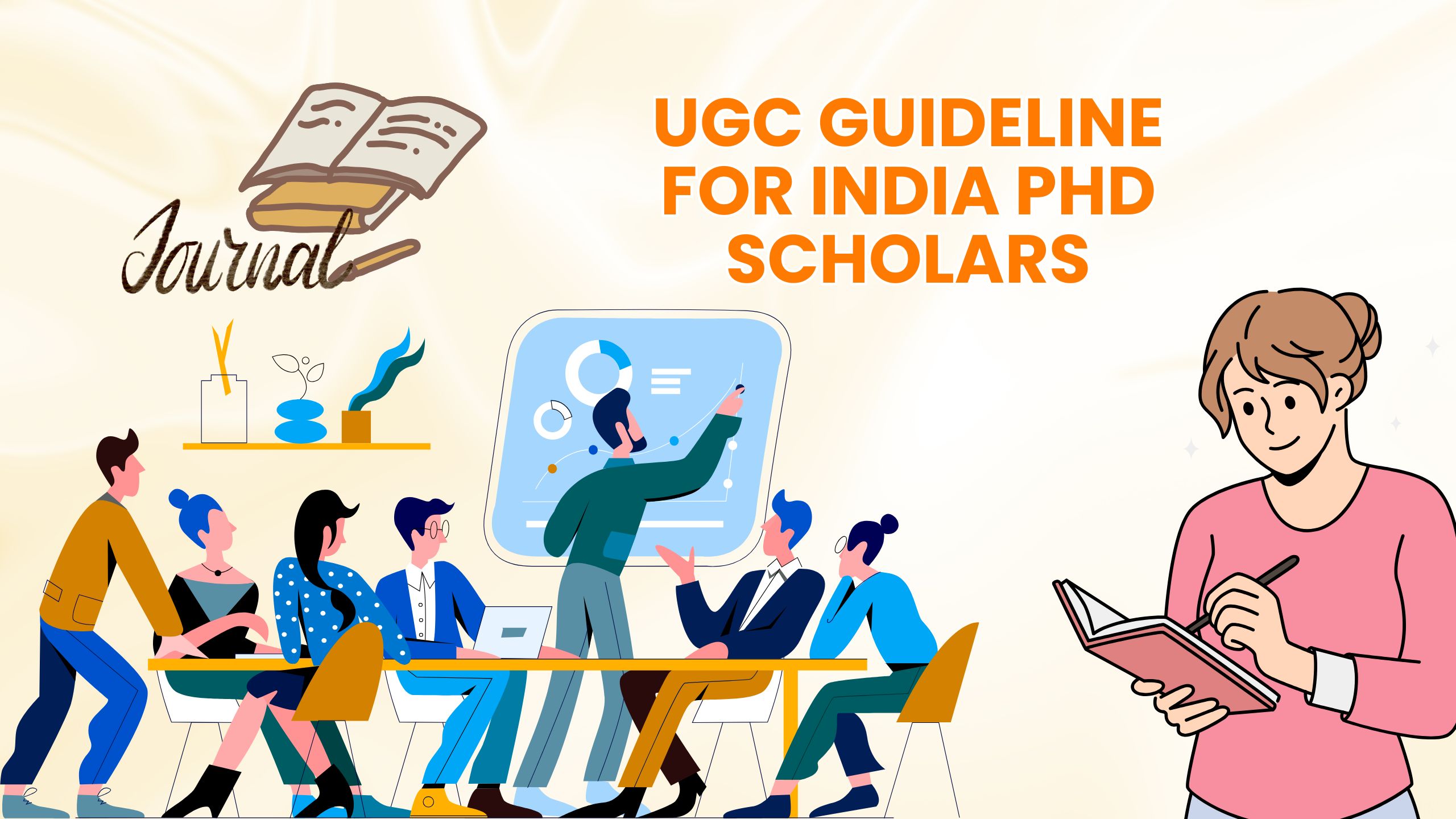University Grants Commission (UGC) of India plays a pivotal role in shaping higher education, particularly for PhD scholars. UGC guidelines provide a structured framework to ensure quality, transparency, and academic rigor in doctoral programs across Indian universities. These guidelines are periodically updated to align with global academic standards and address emerging challenges in research and education. Delves into the key aspects of the UGC guidelines for PhD scholars in India, offering a descriptive and comprehensive guide for aspiring researchers.
Eligibility Criteria for PhD Admission
To pursue a PhD in India, candidates must meet specific eligibility requirements outlined by the UGC. These criteria ensure that only qualified individuals undertake doctoral research:
- Educational Qualification: Candidates must hold a master’s degree or equivalent (such as MPhil) in a relevant field from a recognized university, with a minimum of 55% marks in aggregate. A relaxation of 5% is provided for candidates from SC/ST/OBC (non-creamy layer)/differently-abled categories.
- Entrance Examinations: Admission to PhD programs typically requires clearing a national or university-level entrance test, such as the UGC NET, CSIR NET, or institution-specific exams. Candidates who have qualified for fellowships like JRF (Junior Research Fellowship) are often exempted from entrance tests, subject to university policies.
- Relaxation for Professional Degrees: Candidates with professional degrees like MBBS, BTech, or LLB may be eligible, provided they meet the required academic criteria and clear the entrance process.
Admission Process
UGC emphasizes a merit-based and transparent admission process for PhD programs:
- Entrance Test and Interview: Universities must conduct an entrance exam (70% weightage) followed by an interview or viva-voce (30% weightage). The entrance test assesses research aptitude, subject knowledge, and analytical skills.
- Exemption for Certain Candidates: Candidates who have cleared national-level exams like UGC NET-JRF, CSIR NET-JRF, GATE, or other equivalent tests may be exempted from the entrance exam but must appear for the interview.
- Research Proposal: During the interview, candidates are often required to present a research proposal outlining their intended research topic, objectives, and methodology. This helps evaluate the candidate’s research aptitude and clarity of thought.
Duration of PhD Program
The UGC has defined clear timelines to ensure timely completion of PhD programs:
- Minimum Duration: The PhD program typically spans a minimum of three years, including coursework, for full-time scholars. For part-time scholars, the minimum duration is extended based on university regulations.
- Maximum Duration: The maximum duration is six years, with a possible extension of one year in exceptional cases, subject to approval by the university’s research committee.
- Coursework Requirement: PhD scholars must complete mandatory coursework within the first one or two semesters. This includes research methodology, subject-specific courses, and electives to build a strong foundation for research.
Role of Supervisors and Research Advisory Committee
The UGC places significant emphasis on the role of research supervisors to ensure quality mentorship:
- Supervisor Eligibility: Supervisor must be a full-time faculty member with a PhD and at least five research publications in peer-reviewed or refereed journals. The UGC caps the number of PhD scholars a supervisor can guide at eight to ensure effective mentorship.
- Research Advisory Committee (RAC): Each PhD scholar is assigned an RAC, comprising the supervisor and at least two other faculty members. The RAC monitors progress, provides feedback, and ensures the research adheres to ethical standards.
Coursework and Research Progress
The UGC mandates structured coursework to equip scholars with essential research skills:
- Credit Requirements: PhD scholars must complete a minimum of 12–16 credits of coursework, covering research methodology, quantitative techniques, computer applications, and subject-specific topics.
- Research Progress Evaluation: Scholars must submit periodic progress reports (every six months) to the RAC. These reports detail research milestones, challenges, and plans for the next phase.
- Pre-PhD Submission Seminar: Before submitting the thesis, scholars must present their work in a pre-submission seminar, incorporating feedback from the RAC and external experts.
Thesis Submission and Evaluation
The UGC has stringent guidelines for thesis submission and evaluation to maintain academic integrity:
- Thesis Originality: The thesis must be original, and scholars are required to submit a plagiarism check certificate using UGC-approved software (e.g., Turnitin or iThenticate). The plagiarism limit is typically set at 10%, excluding references and self-authored content.
- Thesis Submission: The thesis must be submitted in the prescribed format, adhering to the university’s guidelines on structure, referencing, and style.
- Evaluation Process: The thesis is evaluated by at least two external examiners, one of whom may be from outside the state or country. A viva-voce examination is conducted post-evaluation, where the scholar defends their research before a panel.
Publication Requirements
To enhance the quality of research output, the UGC encourages PhD scholars to publish their work:
- Minimum Publication: Scholars are required to publish at least one research paper in a peer-reviewed or UGC CARE-listed journal before thesis submission. Some universities may require two publications.
- Open Access and Repository: The UGC mandates that the final thesis be uploaded to the Shodhganga repository (shodhganga.inflibnet.ac.in), a digital platform for Indian theses, to promote open access to research.
Ethical Guidelines and Research Integrity
The UGC emphasizes ethical research practices:
- Plagiarism and Misconduct: Strict action is taken against plagiarism, data fabrication, or any form of academic misconduct. Universities must establish a Research Ethics Committee to address such issues.
- Inclusivity and Diversity: The UGC promotes equal opportunities for all scholars, with provisions for differently-abled candidates, such as extended time for coursework or thesis submission.
Financial Support and Fellowships
PhD scholars in India can avail various fellowships to support their research:
- UGC Fellowships: Schemes like the UGC JRF, Dr. D.S. Kothari Postdoctoral Fellowship, and Maulana Azad National Fellowship provide financial assistance to eligible candidates.
- Institutional Support: Many universities offer stipends or teaching assistantships to PhD scholars, particularly those enrolled in full-time programs.
- External Funding: Scholars are encouraged to apply for research grants from agencies like DST, DBT, or ICSSR for specialized projects.
Recent Updates in UGC Guidelines
The UGC has introduced several reforms to align PhD programs with the National Education Policy (NEP) 2020:
- Four-Year Undergraduate Degree Holders: Candidates with a four-year bachelor’s degree (e.g., BS or BE) with a minimum of 75% marks can directly apply for PhD programs, provided they clear the entrance test.
- Part-Time PhD Programs: To accommodate working professionals, the UGC has introduced provisions for part-time PhD programs, with relaxed coursework and timeline requirements.
- Interdisciplinary Research: Scholars are encouraged to pursue interdisciplinary research, aligning with NEP 2020’s focus on holistic education.
- Exit Options: The UGC allows scholars to exit the PhD program with a Master of Philosophy (MPhil) degree in certain cases, though the MPhil program itself has been largely phased out.
Challenges and Recommendations
Despite the robust framework, PhD scholars often face challenges such as delayed evaluations, limited funding, or inadequate infrastructure. To address these:
- Timely Evaluations: Universities should streamline the thesis evaluation process to avoid delays.
- Enhanced Funding: Increasing the number of fellowships and their stipend amounts can support more scholars.
- Mentorship Training: Supervisors should receive training to provide effective guidance and support.
The UGC guidelines for PhD scholars in India aim to foster a research ecosystem that is rigorous, inclusive, and globally competitive. By adhering to these guidelines, scholars can produce high-quality research that contributes to India’s academic and societal growth. Aspiring PhD candidates are encouraged to stay updated with the latest UGC notifications and university-specific regulations to navigate their doctoral journey effectively.




